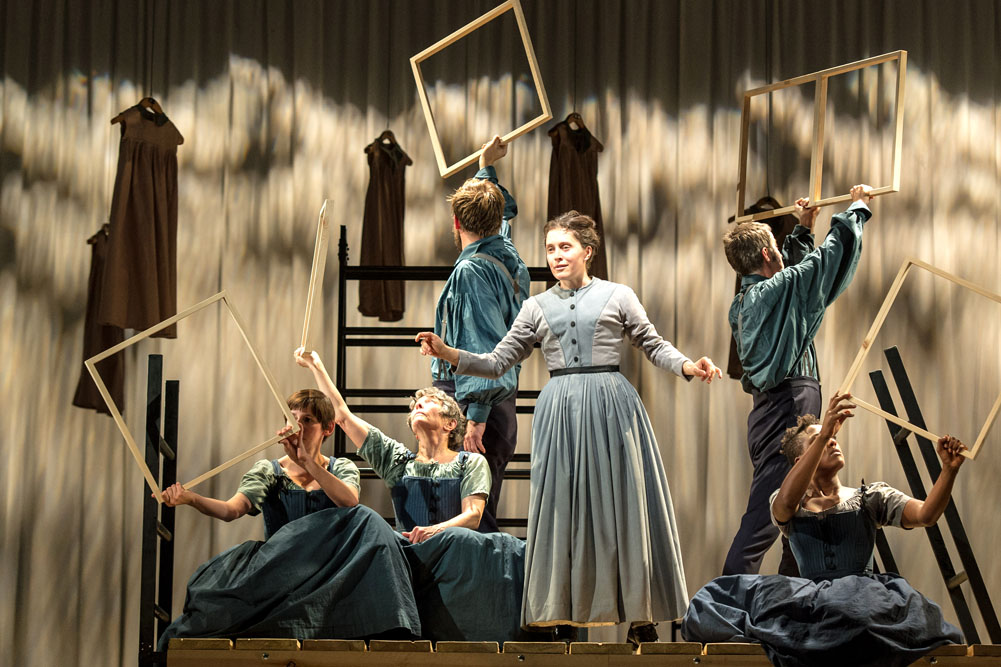
Sally Cookson’s stage adaption of the Brontë novel makes a battle-hardened return to Bristol after its weight-shedding workout at the National Theatre. My overall impression and admiration is undimmed by the compression of what started as two shows into a single two-acter. My original review can be found here, so I will concern myself here with ‘further thoughts’.
Apart from making the play a little more accessible to some theatre-going punters little has changed in terms of the overall arc of the play. Any temptation to concentrate on the love story has been resisted, with due weight being given to what Rebecca Goldstein has referred to as, ‘mattering’, that is that self-reflection of an individual’s worth; a question which has been troubling us since Homer’s Illiad. So, act one is still concerned with Jane’s struggle for acceptance in a society, which could see a little orphan girl as ‘less than a servant’. If anything the compression throws more light onto the little acts of human compassion and consideration, which can be seen more in contrast to rather than isolated from the crushing effect of religious fundamentalism and rules for rules’ sake.
I think it’s worth pulling out the contribution of Benji Bower’s music for consideration. The novel is subtitled, ‘An Autobiography’, and the reader is immediately drawn into the story by the first-person narrative as they share the recollection along with the author. With the transfer to stage of course, we inevitably become observers. This is where Cookson’s clever use of music provides a bridge to the emotions of the narrator. The music underlines the emotional journey that mirrors the intellectual struggle that finds its flowering in the meeting of two minds, which is the bedrock of Jane’s relationship with Rochester. Unlike in many films where the music is trying to tell the audience what to feel or think, Bower’s score gives us an insight into what Jane is feeling. It would be a different production without it.
The things which delighted me first time round – the windows motif for example and the pure theatricality of the storytelling – had lost none of their power by familiarity. Jane’s looking through the windows at the possibilities of life on the outside at Lowood and the blast of fresh, life giving air, as she casts open the windows at Thornfield stay in the memory as theatrical poetry.
Each cast member impressed on the first iteration, but I cannot recall performances to mind sufficiently vividly to decide whether or not there have been any significant changes in the interim; suffice to say they were all faultless. However, one has to pick out Madeleine Worral whose crafted performance gave Jane a plainness of visage and demeanour which contrasted with her beauty of spirit; something which would no doubt have impressed the author. ★★★★☆ Graham Wyles 22nd January 2016
Photography Manuel Harlan

